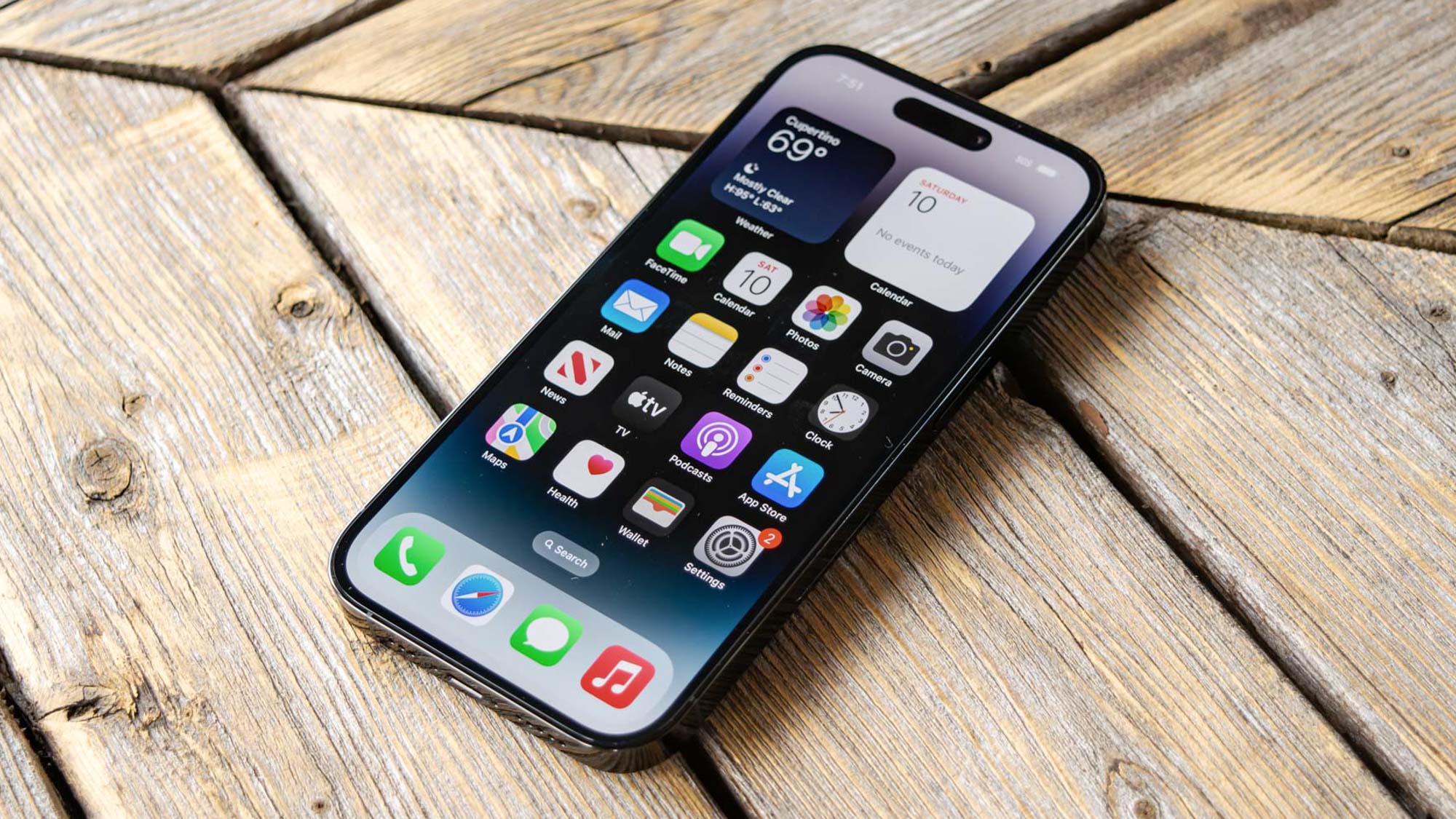iPhone 15 Pro tipped for price hike — and these upgrades are the reason
An analyst thinks you'll be paying more for iPhone 15 Pro models this fall

Add another voice to the chorus of people who think the iPhone 15 Pro is getting a price hike in the fall. A prominent Apple analyst thinks prices will be going up as Apple adds new features to its Pro models.
The analyst, Jeff Pu of Haitong International Securities in Hong Kong, is a frequent commenter on Apple's upcoming plans. And in a research note spotted by MacRumors, Pu cites several different rumored upgrades as reasons behind the iPhone 15 Pro price hike, as Apple will likely have to make a case as to why people should pay more for this fall's Pro models.
Specifically, Pu notes that the Pro models are rumored to get a more durable titanium frame, replacing the stainless steel frame of the current iPhone 14 Pro models. Additionally, the iPhone 15 Pro could feature solid-state buttons with haptic feedback that would require an additional haptic engine. This would presumably result in a more durable design.
A17 Bionic power, bigger zoom

Other cited changes that could lead to a price increase are less speculative. The iPhone 15 Pro is widely expected to run on Apple's upcoming A17 Bionic chip, which will reportedly be built on a 3nm process. That's likely to lead to big performance and power efficiency gains over the iPhone's current chips. Pu also expects Apple to increase the amount of RAM included with the iPhone 15 Pro models.
Finally, there's the possibility of the iPhone 15 Pro Max adding a periscope style lens. That switch would bolster the iPhone's zoom capabilities, which pale in comparison to what phones like the Galaxy S23 Ultra can do. We've heard an iPhone 15 Pro Max with a periscope lens could support a 6x zoom, which would be a serious upgrade from the 3x optical zoom iPhones with a telephoto lens currently offer.
The MacRumors report on Pu's research note doesn't mention a specific price increase for the iPhone 15 Pro, though a previous rumor claimed the models could cost $100 more than the iPhone 14 counterparts. That would mean a $1,099 starting price for the iPhone 15, while the iPhone 15 Pro Max would start at $1,199.
Apple has held the line on iPhone pricing, at least in the U.S. While shoppers in some countries have had to pay more for Apple's phones to account for currency fluctuations, Apple has been charging $999 for its entry level Pro models since the iPhone 11 Pro in 2019.
Sign up to get the BEST of Tom's Guide direct to your inbox.
Get instant access to breaking news, the hottest reviews, great deals and helpful tips.
What about the regular iPhone 15?
It's still unclear if these rumored higher prices would only impact the iPhone 15 Pro or if other iPhone 15 models are in line for a hike, too. In recent years, Apple has sought to create more differentiation between the standard iPhone and the Pro models, and pricing could be a reflection of that.
We'd also caution you that it's still early in the iPhone 15 rumor cycle. We're not expecting to see new phones until September at the earliest, and a lot can change between now and the iPhone 15 release date.
After all, rumors of iPhone price hikes continued right up until the iPhone 14 release in the fall, only to have Apple keep prices the same. While higher iPhone prices are a possibility you should be aware of — particularly if you're planning on a new phone purchase later this year — this is far from a done deal.
In the meantime, check out our iPhone 15 Pro hub and iPhone 15 Pro Max hub for all the latest rumors and leaks.
More from Tom's Guide
Philip Michaels is a Managing Editor at Tom's Guide. He's been covering personal technology since 1999 and was in the building when Steve Jobs showed off the iPhone for the first time. He's been evaluating smartphones since that first iPhone debuted in 2007, and he's been following phone carriers and smartphone plans since 2015. He has strong opinions about Apple, the Oakland Athletics, old movies and proper butchery techniques. Follow him at @PhilipMichaels.

